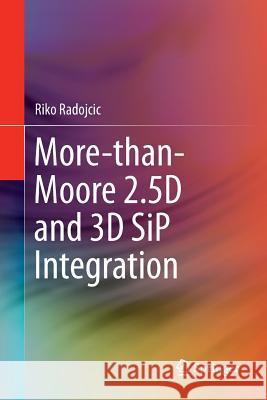More-Than-Moore 2.5d and 3D Sip Integration » książka
topmenu
More-Than-Moore 2.5d and 3D Sip Integration
ISBN-13: 9783319849324 / Angielski / Miękka / 2018 / 182 str.
Kategorie:
Kategorie BISAC:
Wydawca:
Springer
Język:
Angielski
ISBN-13:
9783319849324
Rok wydania:
2018
Wydanie:
Softcover Repri
Ilość stron:
182
Waga:
0.28 kg
Wymiary:
23.39 x 15.6 x 1.07
Oprawa:
Miękka
Wolumenów:
01
Dodatkowe informacje:
Wydanie ilustrowane











